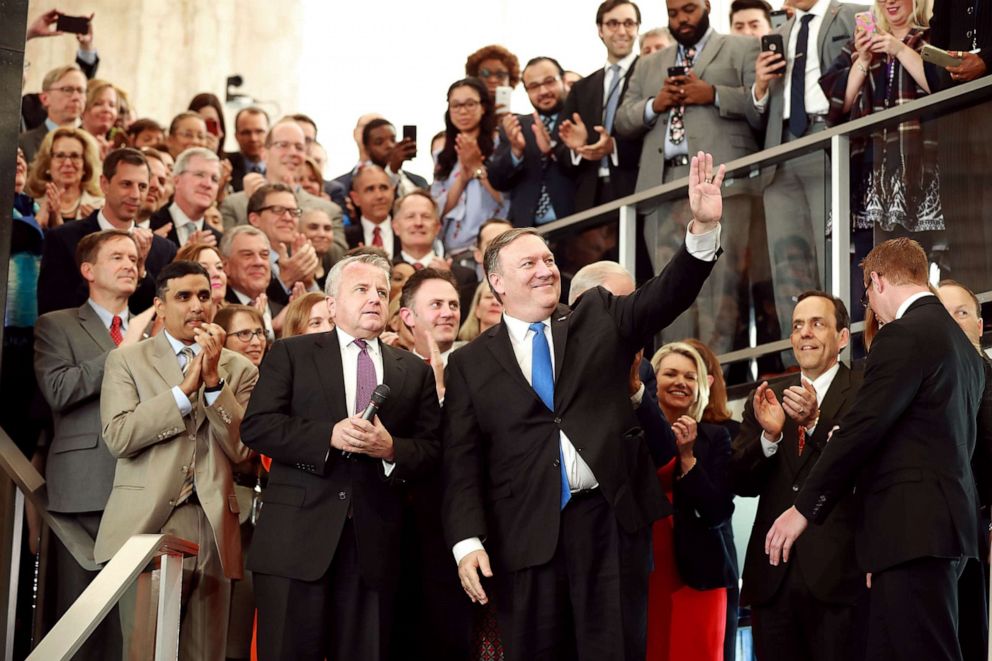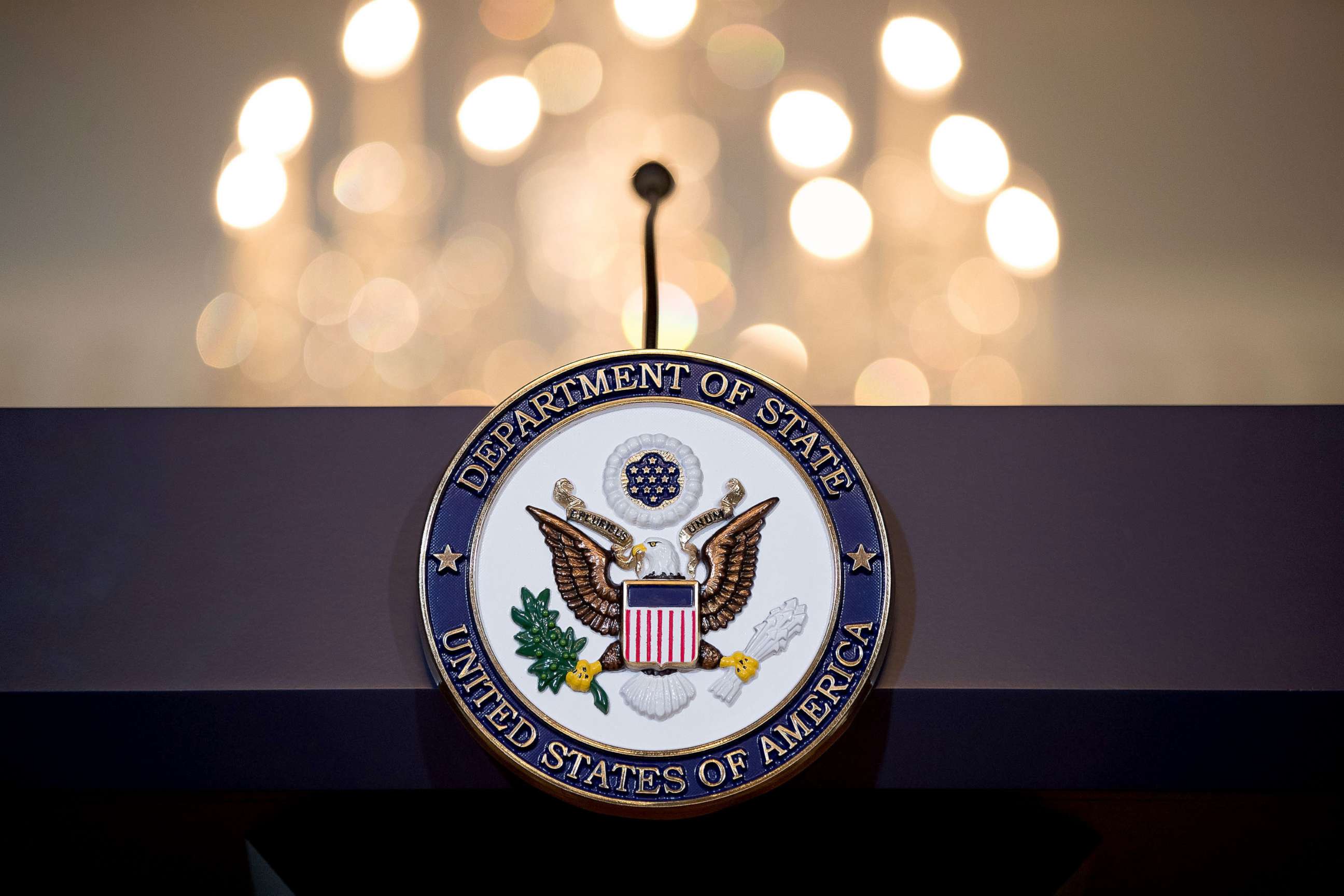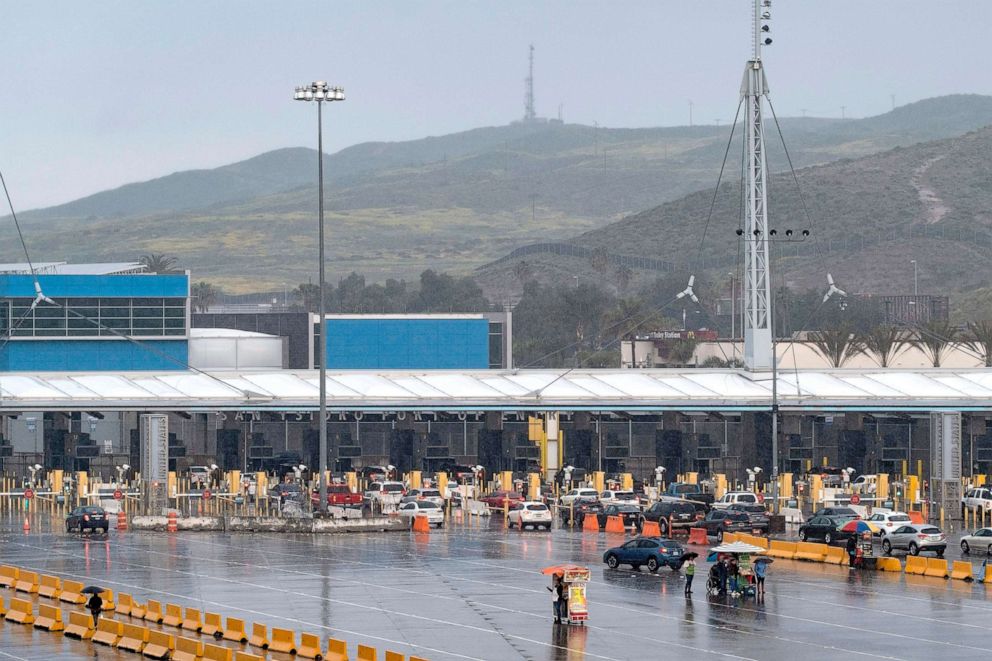State Department expands diversity fellowships amid pressure to better support diplomats of color
One diplomat who quit after repeated harassment has sparked a conversation.
The State Department is facing renewed pressure to do more to support its employees of color and to diversify its senior ranks, particularly after one diplomat's story of repeated harassment at the U.S.-Mexican border has gone viral and sparked a conversation in the Foreign Service.
Toward that end, Secretary of State Mike Pompeo announced an expansion of the department's two top fellowship programs focused on increasing diversity on Wednesday and the launch of a "comprehensive strategic framework" on diversity.
The move was welcomed by advocates, but has been cast as a moderate step amid a deep need to do more to recruit and retain minorities.
"Over the years, the department has taken steps to expand the fellowships exponentially, but new fellows will succeed only if the department decides that ensuring their long-term career success -- and the project of normalizing diversity at the State Department -- is everyone's responsibility," wrote Ana Escrogima, Lia Miller and Christina Tilghman, three U.S. diplomats who started their Foreign Service career as fellows.

The two programs, known as the Pickering and Rangel fellowships, will now accept 90 fellows per year, an increase of 50%, the department announced Tuesday. Both programs focus on "minority groups historically underrepresented in the Foreign Service and those with financial need," recruiting more than 770 fellows since the Pickering program was launched in 1992 and the Rangel program in 2002.
Thomas Pickering, the celebrated retired U.S. ambassador, had proposed that the fellowship bearing his name double its openings. He also called for better recruitment at historically Black colleges and universities, appointing a chief diversity officer who has representatives in each major bureau within the State Department, and requiring diverse officials on the internal boards that approve promotions and on evaluation reports for those promotions.
"It has to begin with the Secretary of State making a statement to all of our employees, not only about the importance and the attention to diversity in the Foreign Service, but setting forth some guiding principles," Pickering, who served as U.S. ambassador to the United Nations, Russia, India, Israel, El Salvador, Nigeria and Jordan, said earlier this summer when laying out recommendations for the agency.
In a statement Tuesday, Pompeo said the department is "committed to creating a more diverse and inclusive workforce" and has launched a "comprehensive strategic framework" to improve diversity and inclusion over the next two years.
But the top U.S. diplomat has also been challenged on his handling of diversity, especially his silence for weeks after George Floyd's killing and the national outcry over race relations, and his emphasis on "broad-based diversity" and diversity of "viewpoints."
"We don't get a full spectrum of understanding of America or the world if we are too narrow in how we think about diversity inclusion," he told a Senate panel this summer. In response to a question, he defended the diversity among his senior officials by pointing to his women-led communications team and the Under Secretary for Management, Brian Bulatao, a longtime friend whose father is from the Philippines.

There are currently no under secretaries or assistant secretaries of state who are Black or Hispanic after Assistant Secretary for Legislative Affairs Mary Elizabeth Taylor resigned in June in protest of President Donald Trump's response to Floyd's killing and racial tensions.
Out of 189 U.S. ambassadors around the world, only three are Black and four Hispanic, according to the American Academy of Diplomacy. The top U.S. diplomats for East Asia and the Pacific, Africa, South and Central Asia, Europe, the Middle East and Latin America are all white men.
A Government Accountability Office report in February found racial and ethnic minorities and women were vastly under-represented at the senior-most ranks, despite persistent pledges by successive administrations to diversify the department. Overall, the department is less diverse than the rest of the federal government's workforce, even after years of special programs like the Pickering and Rangel fellowships, it said.
"To get to a diplomatic service that looks like America at all levels, relying on a purely entry level program and waiting 25 to 30 years to see what happens is not going to work. That hasn't worked, despite all the best intentions going back to the Foreign Service Act of 1980," said Uzra Zeya, a career diplomat who quit after serving as deputy chief of mission at the U.S. embassy in Paris, in part, because of the Trump administration's lack of diversity.
Expanding diversity fellowships will also not solve these issues of accountability or the wider cultural problems within the department, according to Escrogima, Miller and Tilghman, whose letter was published by the diplomats' union, the American Foreign Service Association.
"Any future expansion (of the Pickering and Rangel programs) should be accompanied by a concerted effort to address grave structural problems within the department -- in particular, the department's inability to retain at the senior levels the very talent it works so hard to recruit at entry level," they wrote.

Another issue gripping the Foreign Service now is the treatment of Black diplomats at border crossings and by immigration officials, in particular American ones. Tianna Spears sparked that conversation with a blog post in late May about being repeatedly harassed by U.S. Customs and Border Patrol when she was posted in Ciudad Juarez as a consular officer.
Virtually every time she crossed the border, she wrote, agents took her aside for secondary questioning without cause, accused her of being a drug dealer or faking her diplomatic passport, or otherwise harassed her. The repeated incidents led to post-traumatic stress and forced her to quit the Foreign Service after just one tour, she said.
Her story inspired others to come forward, including Charles Ray, former U.S. ambassador to Cambodia and Zimbabwe, who shared that he was harassed by a U.S. border agent in Hawaii while returning to his post in Cambodia.
"I was dismayed and disgusted, but unfortunately, not at all surprised" by Spears' story, Ray wrote. "That such incidents still happen in 2020 is disheartening."
The American Academy of Diplomacy wrote to Pompeo in July, urging him to review "the mistreatment of Black and other minority staff, indeed all State Department staff, by law enforcement at border entry posts" and to "make clear to all Department employees that you regard such mistreatment as unacceptable."
Pompeo has not commented on the incidents.



